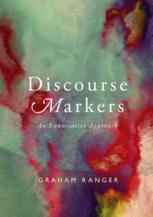

Most ebook files are in PDF format, so you can easily read them using various software such as Foxit Reader or directly on the Google Chrome browser.
Some ebook files are released by publishers in other formats such as .awz, .mobi, .epub, .fb2, etc. You may need to install specific software to read these formats on mobile/PC, such as Calibre.
Please read the tutorial at this link. https://ebooknice.com/page/post?id=faq
We offer FREE conversion to the popular formats you request; however, this may take some time. Therefore, right after payment, please email us, and we will try to provide the service as quickly as possible.
For some exceptional file formats or broken links (if any), please refrain from opening any disputes. Instead, email us first, and we will try to assist within a maximum of 6 hours.
EbookNice Team

Status:
Available0.0
0 reviewsIn our everyday speech we represent events and situations, but we also provide commentary on these representations, situating ourselves and others relative to what we have to say and situating what we say in larger contexts. The present volume examines this activity of discourse marking from an enunciative perspective, providing the first English-language study of the highly influential Theory of Enunciative and Predicative Operations. This semantic/pragmatic theory is popular among academics who specialize in linguistics, discourse analysis, translation studies and didactics in France, but has not yet been widely adopted elsewhere. The tools of this theory are applied to a variety of specific discourse markers in contemporary English and semantic hypotheses are tested using the data-based approach of corpus linguistics. This book therefore provides an English-speaking readership with the keys to understand the theory underlying the author’s analysis of a selection of markers (‘anyway’, ‘indeed’, ‘in fact’, ‘yet’, ‘still’, ‘like’ and 'I think'). This book will provide a valuable resource for students and researchers in linguistics with an interest in discourse markers, natural language argumentation, formal semantics, the interfaces between syntax, semantics and pragmatics, linguistic theorisation and French – or “poststructural” – models of discourse analysis.